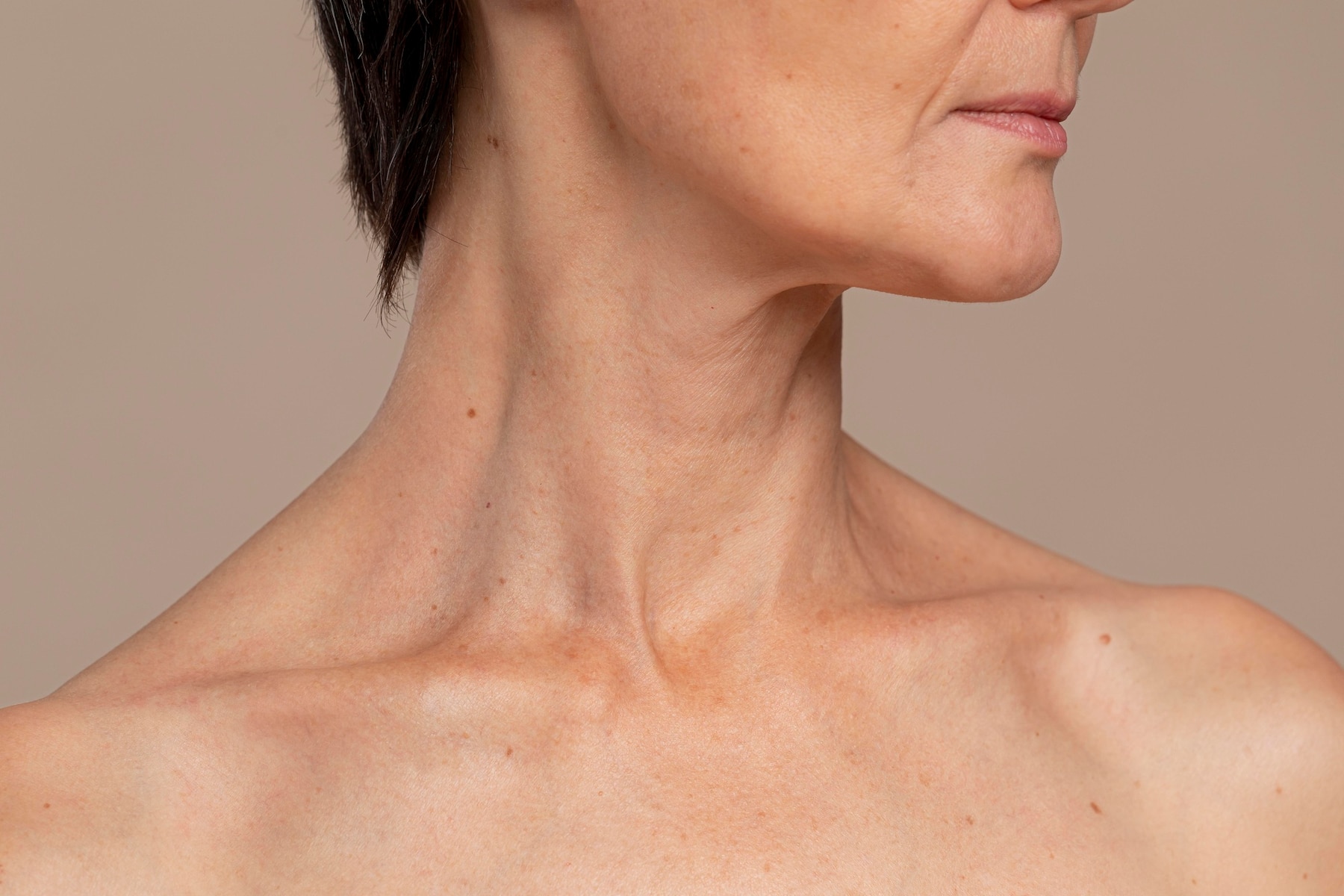 Assoc. Prof. Lina Zabulienė / RVUL archive
Assoc. Prof. Lina Zabulienė / RVUL archive
“In the words of the English writer, Jonathan Swift, ‘The best doctors in the world are Doctor Diet, Doctor Quiet and Doctor Merryman,’ and this confirms what the research has shown us, that a balanced diet, physical activity, emotional balance, quality sleep and stress prevention help us to manage many chronic diseases, including thyroid disorders,” Lina Zabulienė, an endocrinologist and Associate Professor at the Faculty of Medicine of Vilnius University, said. We talked with Dr Zabulienė about disorders of the thyroid gland, often referred to as the “wisdom” or “stress” gland, to discover what the thyroid gland is for, what are its most common disorders, can a malfunctioning thyroid gland develop into cancer, and how to treat and protect your thyroid gland.
 Assoc. photo
Assoc. photo
What is the thyroid gland and how important is it?
The thyroid gland is a butterfly-shaped endocrine gland located at the front of the neck. It releases two important hormones, thyroxine, and triiodothyronine. These hormones affect every cell in the body and are essential for the functioning of all vital organs, for physical and mental development, particularly during pregnancy and early childhood, for growth and puberty. They are responsible for metabolising substances including carbohydrates, proteins, fats, water and electrolytes, our energy levels, and they affect the normal functioning of the brain, cardiovascular system, muscles, gonads, skin and our sleep patterns throughout our lives.
How does thyroid dysfunction manifest itself? How is it diagnosed?
There are two types of thyroid disease. The first group of conditions includes anatomical abnormalities of the thyroid gland. Some of these (a dispersed enlargement or large nodules, also known as goiters), can be visually observed when the neck becomes thicker or its shape alters. Other changes in the tissue (smaller nodules, a reduced thyroid gland or chronic inflammation), can be detected on examination or during an ultrasound test. If thyroid nodules have already been previously diagnosed, they must be monitored through repeated ultrasound tests and, if necessary, a fine-needle biopsy with a cytological examination of the thyroid nodules or even radionuclide scanning. The second group of conditions are thyroid disorders (hypothyroidism or hyperthyroidism), which are only detected using laboratory tests to determine the levels of thyroid hormones in the blood.
There are four main laboratory tests that are routinely used to assess thyroid function. These are, the thyrotropic hormone (TTH) produced in the pituitary gland, free thyroxine (LT4), free triiodothyronine (LT3) and thyroid peroxidase (ATPO), which allow the doctor to judge the severity of the patient’s condition, select the best treatment and predict the outcome. Thyroid laboratory tests are important both for the detection of a developing condition and for monitoring its progress in cases of hypothyroidism, hyperthyroidism, or chronic thyroiditis, and should be repeated as often as recommended by the attending physician.
Hypothyroidism develops if the thyroid gland is failing to create and release enough thyroid hormones into your body. In the early stages, the disease does not cause any noticeable ailments. However, in the long term, if hypothyroidism is left untreated, people become tired, sluggish, lethargic, apathetic, moody, with memory impairment, a slower metabolism, gain weight, exhibit muscle weakness, hair breakage, dry and scaly skin, have a swollen face and hoarse voice, a loss of skin pigmentation, increased cholesterol, and are at risk of developing cardiovascular disease. Menstrual cycle disorders (heavy and frequent cycles, a lack of ovulation), can make it more difficult to get pregnant. Some people with hypothyroidism may have an altered sense of taste and smell, especially during pregnancy or while dealing with a COVID-19 infection.
If the thyroid gland produces too many hormones, hyperthyroidism develops. This leads to difficulty tolerating heat and warmth, profuse sweating, increased heart rate or even abnormal heart rhythm, weight loss, slight tremors in the hands (sometimes the whole body will tremble), muscle weakness, a feeling of tightness or increased pressure in the eyes, watery eyes, diarrhoea, itchy skin, hair loss, infrequent periods, and so on. When the thyroid gland is over productive, the person may become unusually sensitive, nervous, or even hyperactive, and full of energy, but then feel weak, tired, fatigued, sometimes with disturbed sleep. It is important to detect the disease as early as possible with thyroid hormone tests and begin treatment.
Although hypothyroidism and hyperthyroidism are different conditions, a person with chronic autoimmune thyroiditis may experience symptoms of both hyperthyroidism and hypothyroidism at different times, especially in the early stages of the disease.
The diagnosis of the disease and the choice of tests will depend on the symptoms someone is experiencing, their medical history, and the doctor’s decision, but an expert interpretation of the test results by the doctor is essential. The earlier the disease is detected and treated, the more reinvigorated and healthier the person will feel.
 Assoc. photo
Assoc. photo
What treatment is prescribed for different thyroid conditions?
Hypothyroidism is treated with thyroid hormone replacement therapy using an oral synthetic thyroid hormone (synthetic thyroxine) with levothyroxine as the active substance. The structure of the drug corresponds to that produced naturally by thyroid hormones. Daily treatment continues throughout a patient’s life, with the appropriate dose being selected for each individual. For hypothyroidism, the lowest dose of the drug is given, which results in a decrease in the perceived discomfort and normal TTH and LT4 values. Hyperthyroidism is treated with thyroid suppressants. This treatment should last for at least two years. Earlier discontinuation of the medication may lead to a relapse in up to 50-80% of cases. If medication fails to cure it within two years, radioactive iodine treatment may be prescribed. This treatment method was discovered in the 1940s and is one of the first forms of targeted therapy in medicine. It selectively destroys overactive thyroid cells while sparing the rest of the body’s cells. In more severe cases of hyperthyroidism, the thyroid gland is removed by surgery. After surgery, treatment with thyroid hormone replacement therapy is prescribed for life. In the case of an enlarged thyroid gland or one with nodules in it, depending on the cause, size, and the pressure of the surrounding tissues and structure (benign or malignant nodules), the physician, after discussing the individual case with their patient, will make a joint decision on further monitoring, treatment with radioactive iodine and, if necessary, toxic adenoma or surgery.
Can you tell us more about autoimmune thyroiditis: what is it and how is it treated?
In chronic autoimmune thyroiditis, thyroid cells are destroyed by cellular and antibody-mediated immune reactions, leading to progressive thyroid fibrosis. This disease is also known as Hashimoto’s thyroiditis, after Dr Hakaru Hashimoto, who first described it in 1912. In thyroiditis, thyroid peroxidase (ATPO) and/or thyroglobulin (Anti-Tg) are usually detected in the blood, although in 10% of cases they may undetected. In developed countries, it is the most common cause of hypothyroidism in individuals age 6 and onwards. Women are 10-20 times more likely to suffer from autoimmune thyroiditis than men. The disease is most often detected around the age of 30-50 but can be detected at any age. Studies show that in more than three-quarters of those with a predisposition to the disease, it is due to genetic factors, and 21% to the influence of the environment and reproductive hormones. Despite being an autoimmune disease, many patients who develop hypothyroidism manage it effectively with thyroid hormone replacement therapy (levothyroxine). Regular monitoring and blood tests are important to ensure timely selection of the right dose of medication. Chronic autoimmune thyroiditis can occur in association with autoimmune gastritis (30-40% of cases), so in the presence of iron deficiency anaemia and thyroxine absorption problems, patients should be investigated for gastric diseases. Autoimmune thyroiditis is also more common in type 1 diabetes mellitus, vitamin B12 anaemia, gluten intolerance (celiac disease), and adrenal insufficiency. Autoimmune thyroiditis also increases the risk of depression.
Can an untreated thyroid gland develop into cancer or other serious diseases?
Untreated thyroid conditions can lead to serious complications, so correct treatment and regular monitoring are essential. Untreated hypothyroidism can lead to heart problems, mental disorders and the rare but life-threatening condition, myxoedema coma. Untreated hyperthyroidism can lead to atrial fibrillation, endocrine ophthalmopathy, thyroid storm – a sudden and severe escalation in symptoms, especially with an increased metabolic rate and the risk of osteoporosis. Although most thyroid nodules are benign, a small proportion (5-10%), may be malignant, so regular monitoring and timely treatment are essential.
In which cases would a surgical intervention be required to treat thyroid disease?
Thyroid surgery is one of the oldest surgical procedures. Modern advances in science have made thyroid surgery safer, less complicated, and more effective, often using minimally invasive techniques that ease the post-operative period. Surgery is performed if there is a large goiter causing symptoms of compression (e.g. difficulty breathing or swallowing), if the hyperthyroidism cannot be cured by other methods, and if malignant or suspicious thyroid nodules are detected. The surgical procedure usually involves removing part or all of the thyroid gland, depending on the cause of the condition. After surgery, patients may need lifelong thyroid hormone replacement therapy.
 Assoc. photo
Assoc. photo
How is a thyroid disorder linked to mood disorders?
The link between thyroid disorders and changes in mood and cognition has been recognised since the earliest descriptions of thyroid disease, because thyroid hormones influence the brain’s neurotransmitter systems, especially serotonin, and thyroid hormone disruptions can mimic or exacerbate conditions like depression and anxiety. Proper diagnosis and treatment of thyroid conditions can lead to significant improvements in mood and mental health. Studies show that if hypothyroidism is undiagnosed, left untreated or treated inadequately, the risk of developing depression increases. Hypothyroidism is known to be one of the main causes of treatment-resistant depression. In addition, in older adults with borderline normal thyroid function, low levels of free triiodothyronine (LT3) may be an independent risk factor for impaired cognitive function (such as short-term memory, language and attention), and therefore appropriate screening and timely treatment of elderly patients is particularly important. Hyperthyroidism is associated with increased anxiety, irritability, and mood swings. Recent studies on brain function connectivity in hyperthyroidism have shown the possible neurobiological effects of excess thyroid hormones on the hippocampus and on the complex networks of various brain areas, which may affect thinking, cognitive functions, and emotions. Thyroid dysfunction can also impair our sleep function – the ability to get a healthy and restful night’s sleep. Hyperthyroidism and hypothyroidism have been shown to often accompany insomnia, restless legs syndrome and obstructive sleep apnoea, so it is important to identify and manage thyroid dysfunction in a timely manner, especially in patients with these common sleep disorders.
Can a person treat their thyroid disorder and how can thyroid disease be prevented?
Dietary iodine, iron, selenium, zinc, and the amino acid tyrosine are essential for the production of thyroid hormones, so a healthy diet is important for maintaining thyroid health. The brain cells of the foetus, infant and child are very sensitive to iodine deficiency and thus to thyroid hormone deficiency, as their development, growth and differentiation begin early in foetal development and continue for two to three years after birth. Iodine deficiency is also common in people who do not consume iodised salt, who do not eat enough other sources of iodine, such as fish and seafood, bread, milk, or eggs, or who are vegetarian or vegan. Iodine deficiency has a direct impact on children’s learning abilities, women’s health, our quality of life, level of activity and economic productivity. Dietary iodine overdose is not possible (except in the rare case of consuming large quantities of sea kale, drinking water or mineral water rich in iodine). In some cases of thyroid dysfunction, it is recommended to avoid consuming excessive amounts of goitrogenic (thyroid-inducing) foods (e.g. soya, kale, and broccoli). Deficiencies in selenium, zinc and vitamin D may be associated with the development of thyroid disease. A daily intake of 60-75 µg of selenium is recommended, which is essential for the synthesis and function of thyroid hormones (conversion of thyroxine to triiodothyronine), and for protection against free radicals and oxidative damage. And so, a complete diet rich in nutrients, such as fruit, vegetables, some nuts, whole grains, fish, and other protein-rich foods, provides the body with the necessary vitamins and minerals important for thyroid function. However, excessive use of dietary supplements can be harmful.
The thyroid gland is also considered a “stress” gland that can be affected by an excessively long working day, lack of rest and sleep, or other long-term stress. Stress management techniques such as meditation, yoga, mindfulness and breathing exercises, and regular physical activity can reduce the effects of stress, increase psychological resilience, and at the same time improve thyroid function.
